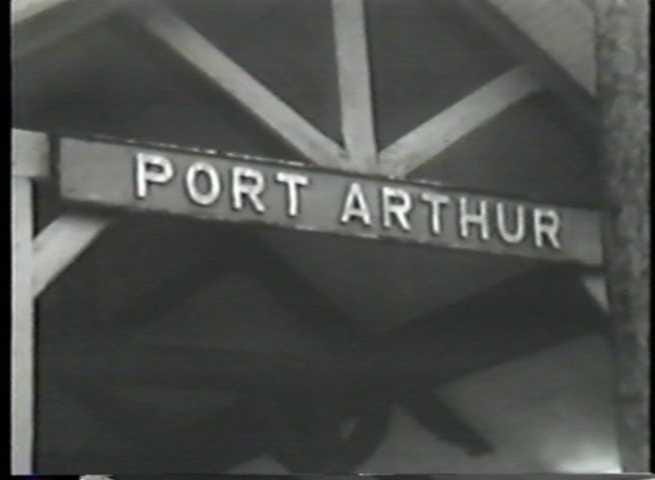The Port Arthur Story
Movement Folk Tales
“It was a brutal campaign.”
That was Ralph Yarborough’s assessment of his loss to Alan Shivers in the race for the office of Governor of Texas in 1954. That campaign featured the infamous Port Arthur video that is still seen as one of the sleaziest electoral tricks ever perpetrated.
In the early 1990s, PHIT collected a series of interviews for the purpose of producing a documentary on the Progressive Pioneers of Texas.
That is what PHIT called a feisty band of progressives from the Texas liberal-labor coalition that battled a rabid conservatism that espoused racist and anti-union views.
The Progressive Pioneers advocated racial justice, labor rights, environmental protection, and economic fairness. They founded newspapers, created Democratic clubs and battled the meanest and most corrupt politicians in Texas history.
Sound familiar?
Back in the last century, no one was interested in such a supposedly ancient documentary. We put the interviews in the vault and have recently digitized them. PHIT is now mining those archival interviews to retell those legendary stories of yesteryear in this Substack.
Ralph Yarborough ran for governor of Texas in 1952 and 1954. He lost both times to Alan Shivers. Price Daniels resigned his Senator’s seat in 1956 to run for Texas governor. Yarborough ran and lost again. History, however, suggests that Yarborough should have won all three of those elections. It was stolen by conservatives with dirty tricks and outright vote fraud. Yarborough was finally successful in the race to replace Daniels at Senator. He won that election primarily because he only needed a plurality. A runoff was not required.
Yarborough was a Texas populist who campaigned on the rousing promise to “Put the jam on the lower shelf so the little people can reach it.” Hightower worked in Yarborough’s office in the 1960s as a legislative aid. The readers of this Substack know that Hightower is the subject of a massive PHIT oral history project. The long and storied tradition of Texas populism was carried on when Hightower became Commissioner of the Texas Department of Agriculture.
Today, we would like to tell just one Texas Folk Tale from that brutal 1954 campaign.
The Port Arthur Story.
Yarborough was on track to win the Governor’s seat in 1954. Alan Shivers was unpopular. A series of scandals were breaking and Shivers, a Democrat, had supported Eisenhower, a Republican, for President, when he had promised not to do so.
Falling behind, the Shivers campaign played the Commie Card and produced a 11 minute video about Port Arthur, Texas, which was in the middle of coordinated action by the Distributive Processing and Office Workers Association (DPOWA) union to organize and gain better working conditions for a variety of retail outlets.
Here is the opening line of the video…
“This is city in Texas. A year ago, it used to be a thriving city. Children played in the street. Women shopped. Businessmen drank coffee in restaurants. That was a year ago. Today, it is deserted. Children don’t play. Women don’t shop. Businessmen drink their coffee in their offices. Nobody smiles. Ghost City, Texas.”
The film said Operation CIO(Congress of Industrial Unions) was a communist plot and the communists was trying to take over the city as the first step in taking over the oil industry. The film displayed a post-apocalyptic downtown shot with empty streets and blowing trash.
https://texasarchive.org/2010_00360
It was empty because it was filmed at 5 in the morning.
Then they tagged Yarborough as a labor supporter and a communist, and played the clip endlessly wherever they could.
Yarborough lost. He was still irritated by the dirty tricks in 1991, when we interviewed him.
"They showed that thing every 30 minutes for the last week of the campaign over and over, scaring people to death that communists and labor unions were in cahoots and going to wreck Texas.”
He was also highly incensed that the Shivercrats bugged his telephone and that the phone company was in “cahoots” with the Shivers campaign.
Bonus history of the history of the labor conflict…
On November 14, 1953, approximately 450 members of the Distributive Processing and Office Workers Association (DPOWA) launched a series of picket strikes against the retail establishment in Port Arthur, Texas. Seeking recognition from the retail establishments, early reports on the strike noted that it affected department stores, women’s apparel stores, and the two major hotels for the town, the Goodhue and Sabine.
They picketed but generally had little success.
The DPOWA was the successor union to UCAPAWA, which was the union that took over the Pecan Sheller’s Strike from Emma Tenayuca. That strike ended with a victory for the union.



